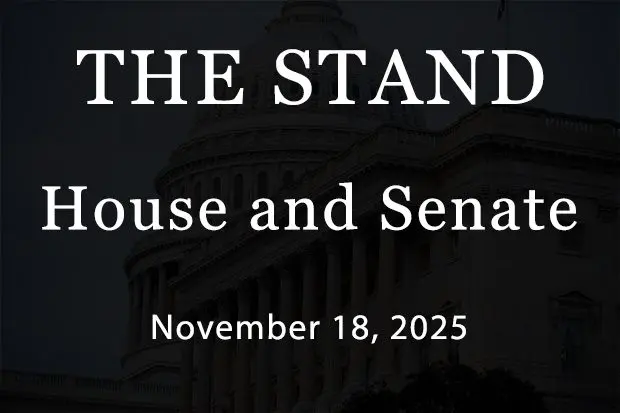
This article was first posted on Denison Forum.
A man yelled “Free Palestine” and hurled an incendiary device into a group at an outdoor mall in Boulder, Colorado, yesterday. Demonstrators for an organization called Run for Their Lives had gathered to raise visibility for the hostages remaining in Gaza. Eight people were hospitalized with burns in what FBI Deputy Director Dan Bongino called an “act of terror.” One victim was in critical condition, according to police.
According to Leo Terrell, head of the antisemitism task force at the Justice Department, “This antisemitic terrorist attack is part of a horrific and escalating wave of violence targeting Jews and their supporters simply for being Jewish or standing up for Jewish lives.”
If such violence is intended to deter the Jewish community, I predict it will have the opposite effect. After leading more than thirty study tours to Israel over many years, I can testify that the Jewish people I know, both in the US and in Israel, are deeply resolute, courageous, and determined. They know the power of fighting for a cause greater than themselves.
Therein lies my point today.
“It brings into focus what’s important to you”
Climbing season at Mount Everest ended Saturday. Every year, between seven hundred and one thousand people attempt the climb; between 60 and 70 percent succeed. It takes about two months to make the climb; the experience costs between $35,000 and $100,000. Most mountaineers train specifically for Everest for at least a year. More than 340 climbers have died attempting to reach or return from the summit.
What draws people to sacrifice so much to do something that offers so little by way of practical return?
It’s not the height itself. If you’ve flown on a passenger jet, which typically cruises at 35,000 feet, you’ve likely exceeded the height of Mt. Everest. It’s not seeing the view; you can do the same by watching this video or others like it.
Alan Arnette, who summited Mt. Everest in 2011, explains its appeal: “It brings into focus what’s important to you. There are a thousand reasons to turn around and only one to keep going. You really have to focus on the one reason that’s most important and unique to you.”
Knowing and doing are not the same thing
Whether we’re planning to summit Mt. Everest or not, in a very real sense you and I are climbing mountains of our own. We are on a path to a destination, a goal, a reason for living. Unlike those who reject faith in a Creator who has a purpose for our lives, we believe that our Father loves us and has a design for us.
Fulfilling this purpose should be “the one reason” for living “that’s most important and unique to you.” We should each seek and follow God’s will for our lives, beginning each day by submitting to his Spirit (Ephesians 5:18) and measuring success by our obedience to his purpose. People who read (and write) articles like this one know this already.
But if you’re like me, knowing that we should obey God’s will and actually doing so are not always the same thing. People who climb Mt. Everest are obviously convinced that this is a triumph worthy of all it costs. Some of us are less sure that the same is always true with regard to the will of God.
Even though we wouldn’t admit it to others, we sometimes harbor unstated questions as to whether complete obedience to his word is worth it. We know of missionaries martyred for their faith. We’re aware of the cultural animosity waiting for anyone who declares and defends biblical truth on sexual morality and other sensitive subjects.
And, quite frankly, we have goals and aspirations for our lives that we’re not sure God fully shares. If we choose to obey his word and will in every dimension of our lives, we’re not convinced that we would be as happy and successful as we want to be.
We’re content to trust in Christ as our Savior, so we’ll go to heaven when we die, and then obey him in all the ways that are obviously beneficial to us. We want him to bless us, so we read his word, pray, worship, and serve (at least to a degree). We’re grateful for his sacrificial love for us, so we seek to love him and others in return.
But if we have to stop doing something we really want to do, or start doing something we really don’t want to do, we discover whether we truly trust that his will is better for us than our own.
“God’s ultimate purpose” for your life
Optional obedience is one of Satan’s subtle strategies for people like you and me. He did not successfully persuade us to reject the gospel. The time you have given to reading this article shows that you want to think biblically and live redemptively in our culture. So he entices us to moderate our commitment to Christ, to “put it in its proper place,” to serve Jesus while serving ourselves.
This is because he knows what we need to remember: a victory far more glorious than climbing Earth’s tallest mountain awaits those who follow Jesus unconditionally today.
When we remember that “God is love” (1 John 4:8), how could it be otherwise? How could his will for us be anything but what is best for us?
His desire for us is that we become like Jesus (Romans 8:29). As Oswald Chambers noted, “God’s ultimate purpose is that his Son might be manifested in my mortal flesh.” How could any purpose be more perfect than becoming like the only perfect person who ever lived? Think of the impact of Jesus’ life on history and ask yourself: If even a few Christians truly manifested Christ in our world, how could our world remain the same?
If it’s still hard to make Christlikeness our highest purpose, we can ask the Spirit to help us. We can pray for the desire to desire this. We can ask for the strength to choose our Father’s will over our own. And we can take our next step into the character and joy of Jesus.
Timothy Keller observed,
“If God is not at the center of your life, something else is.”
Who or what is at the center of yours today?
Quote for the day:
“I was not born to be free—I was born to adore and obey.” —C. S. Lewis





